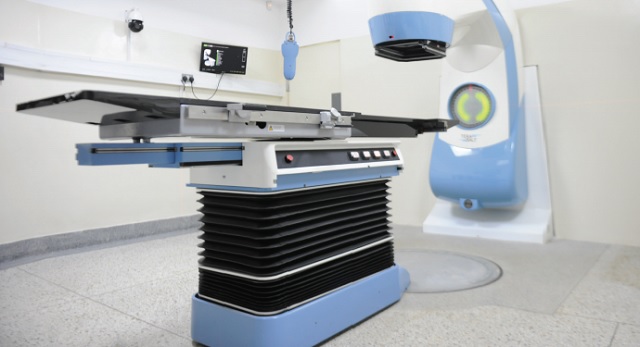
Kampala, Uganda | FLAVIA NASSAKA | Agnes Atiang was in line for a breast operation at the Uganda Cancer Institute in Kampala when we spoke. Her story should have been one of double tragedy. Instead, it was one of hope.
An X-ray at Mbale Regional Referral Hospital had revealed that the 31-year old had tumors in her right breast. Medically, her cancer is stage 2; meaning it is growing but is still contained in the breast or growth has only extended to the nearby lymph nodes. But that was half the story.
The other was that this was the second time fate was bringing Atiang to the Uganda Cancer Institute – in two years. In 2015, she was at the institute; nursing an uncle who was battling cancer of the rectum.
She recalls that instead of her uncle being treated, she was many times advised to take him back home to die because the treatment he required at the time was unavailable.
“He needed radiotherapy. There was nothing,” she said in a brittle voice, “We chose to stay but they were telling us to go back home and die.”
That December, her uncle collapsed in pain and died while she was away searching for painkillers from nearby private pharmacies.
Then just three months after her uncle’s death, the Cancer Institute was plunged into a major public relations crisis as news spread that its only cobalt 60 radiotherapy machine – the only radiotherapy machine in the country – had broken down beyond repair. The country was in panic mode. Many other patients died. Some were referred abroad. The institute was seen by many as a death trap.
But today, instead of dwelling on that grim past, Atiang is optimistic.
“Our hope is down there,” she said, pointing at an aging house fenced off with a wire mesh with a banner that reads, ’Restricted Area’ at the entrance.
Hope arrives
The old house is where a new radiotherapy machine acquired by the government for about 630,000 euros is housed. Though only physicians and patients are allowed beyond the entrance because exposure to radiation can be dangerous to humans, we gained special access.
We were first ushered into the IT room where several computer screens and wires are fixed to operate and monitor whatever happens in the next room where the new cobalt machine is fixed. It is a huge blue and white colored machine in two parts. The main visible part is a huge wall–hang neck on whose head is a huge lighting assembly that beams down a tiny bed on a pneumatic base, the second part, on which a patient lies. The third part is hidden behind the wall.
“We put a false wall not to scare patients,” says Dr. Daniel Kanyike, the Head of Radiotherapy.
He explains that the machine has two cameras; one for monitoring the patient and the other the environment around the patient during treatment.
 The Independent Uganda: You get the Truth we Pay the Price
The Independent Uganda: You get the Truth we Pay the Price





